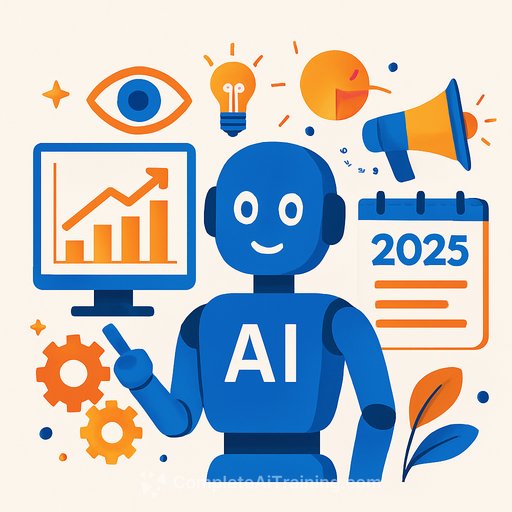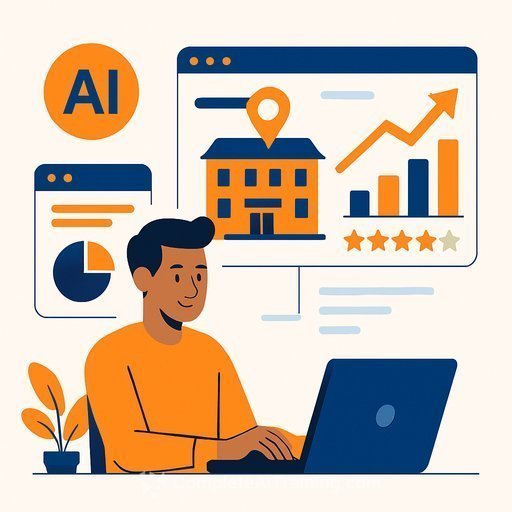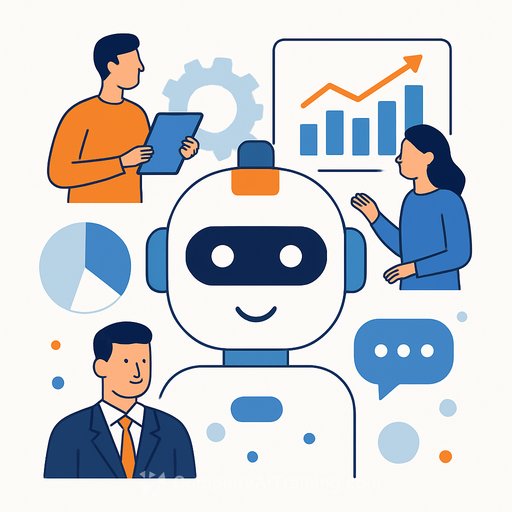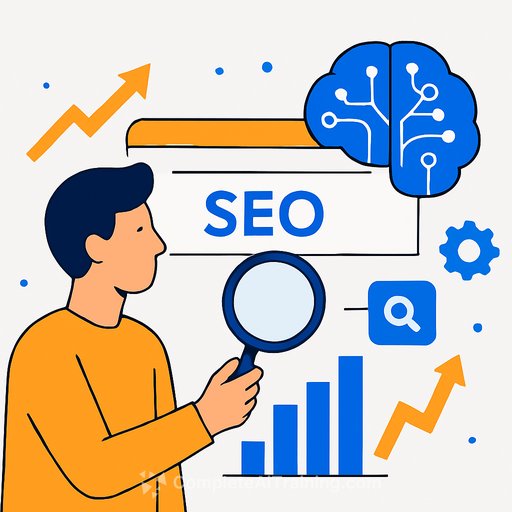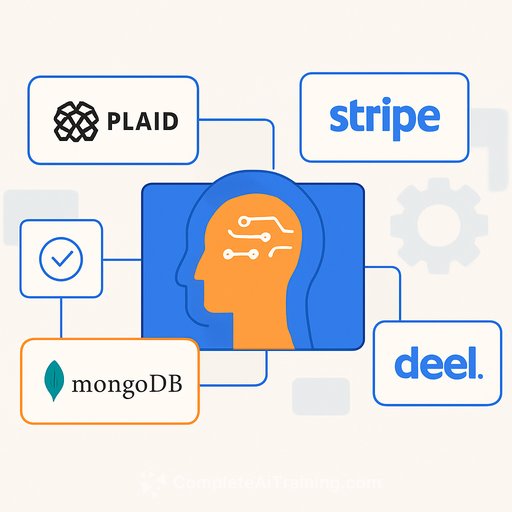AI Marketing Trends 2025: What Digital Advertisers Need to Know
Artificial intelligence has moved beyond buzzwords to become essential in digital marketing. From strategy and content creation to optimization and analytics, AI’s impact is clear. Marketers who integrate AI thoughtfully can improve efficiency and results without trying to adopt everything at once. Here are key AI trends shaping marketing as we move through 2025.
Trend 1: AI Embedded Across Marketing Functions
More marketing teams are embedding AI into their core workflows—content creation, analytics, campaign management, and more. In fact, 78% of organizations used AI in at least one business function by late 2024, up 23% from 2023. This shift lets teams automate routine tasks like social media posting and data analysis, freeing humans to focus on strategic planning and creative leadership.
- 98% of marketers use AI in some capacity, with 29% incorporating it daily.
- 61.4% use AI tools directly in campaigns.
- Generative AI usage grew from 65% to 71% of businesses within 2024.
Marketing saw significant revenue growth due to AI in 2024, second only to strategy, finance, and supply chain. To adopt AI smoothly, organizations should provide training that clarifies AI’s role as an enhancer—not a replacement—for human skills.
Trend 2: AI-Powered Hyper-Personalization
Personalization is critical in 2025. Customers expect content that fits their preferences. AI analyzes real-time behavioral cues—such as browsing history, device type, location, and time of day—to customize messages effectively. Predictive analytics even enable brands to anticipate interests before customers express them.
- 24% of consumers want brands to better understand their needs.
- 73% of business leaders agree AI will reshape personalization.
- 92% of businesses now use AI-driven personalization.
- Personalized CTAs outperform generic ones by 202%.
With deeper personalization, privacy concerns grow. Some customers find highly targeted ads intrusive or manipulative. Brands must prioritize transparency and give users control over their data to build trust.
Trend 3: AI-Driven Automation Boosts Efficiency
Automation using AI reduces repetitive tasks, enabling marketers to spend more time on creative and strategic work. Benefits include cost savings and higher lead generation.
- 92% of marketers say automation is crucial to stay competitive.
- 96% have used automation platforms somewhere in their work.
- 80% of automation users report more leads.
- 47% say automation lowered paid ad costs.
Customer service automation is also increasing, with chatbots and virtual assistants handling initial inquiries that once required hours of human time.
Trend 4: Expanding AI Roles in Content Creation and Curation
While AI’s role in writing blog posts and ad copy is well known, AI also generates images, videos, podcasts, and more. Over half of Americans interact with AI regularly, and marketers use it for content creation (76%), creative inspiration (71%), market data analysis (63%), and image generation (62%).
Voice search is another growing area. Marketers study common voice queries to optimize content for natural language searches via voice assistants.
Trend 5: Ethical Challenges in AI Marketing
As AI becomes central to marketing, ethical issues require attention:
- Bias in algorithms: AI reflects biases in its training data, which can lead to unfair or skewed outputs.
- Data privacy and consent: Collecting user data must comply with privacy laws and respect consumer rights.
- Misinformation: Generative AI can produce inaccurate or misleading information confidently.
Marketers will need to focus more on ethical oversight and strategic guidance while AI handles routine tasks.
Key Takeaways
AI touches nearly every part of marketing—from idea generation to execution and analysis. With AI’s rise, concerns about privacy and ethics grow. While AI can generate content quickly, human review is essential to maintain quality and avoid mistakes. In 2025, adopting AI isn’t optional; it’s a necessity to stay competitive.
Frequently Asked Questions (FAQs)
What are the most impactful AI applications for digital advertisers in 2025?
Key AI applications include predictive audience targeting, real-time bid optimization, dynamic content personalization, and automated performance reporting.
How can small businesses leverage AI in their marketing efforts?
Small businesses can start with chatbots and virtual assistants to automate customer interactions, then expand AI use as they grow.
What are some common misconceptions about AI in marketing?
Common myths include fears that AI will replace marketers, that AI is always unbiased, and that automation can run completely without human input.
How can marketers upskill to work effectively with AI tools?
Building skills in data literacy, analytics, and prompt engineering helps marketers collaborate with AI tools effectively. For targeted training, explore AI certification programs for marketing specialists.
What are the key metrics for measuring the success of AI-powered marketing initiatives?
Track metrics like ROI improvement, acquisition cost reduction, click-through-rate uplift, conversions, time savings, and compliance rates.
Your membership also unlocks:

